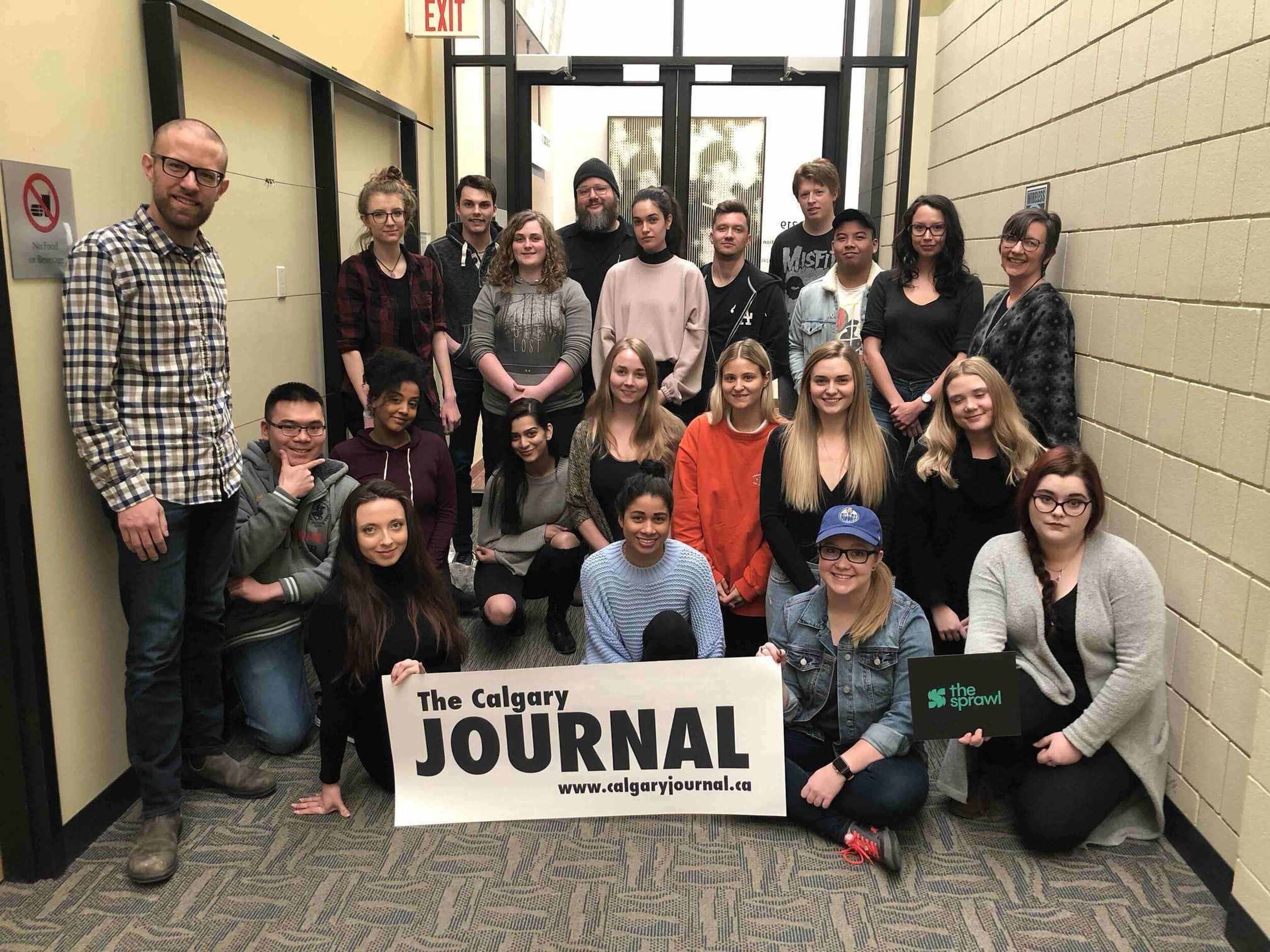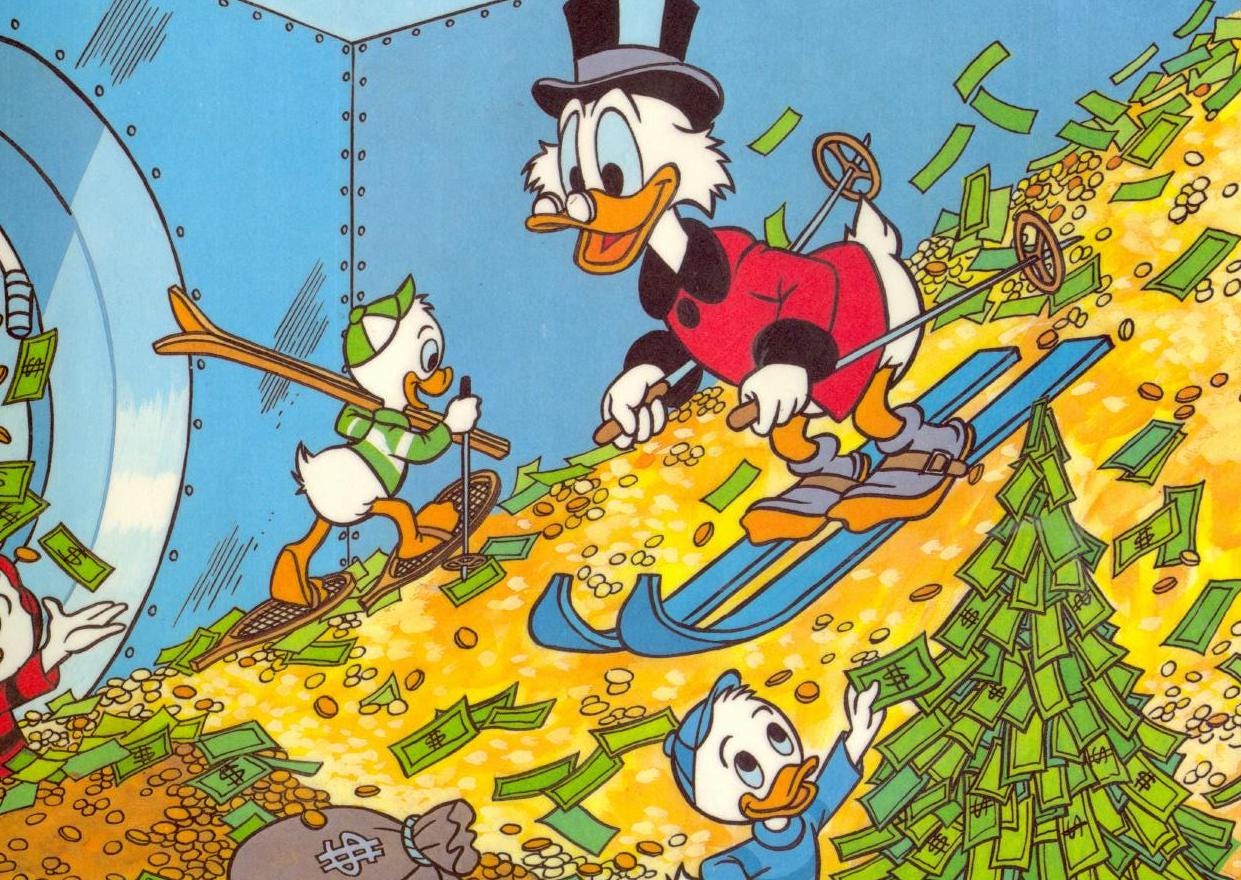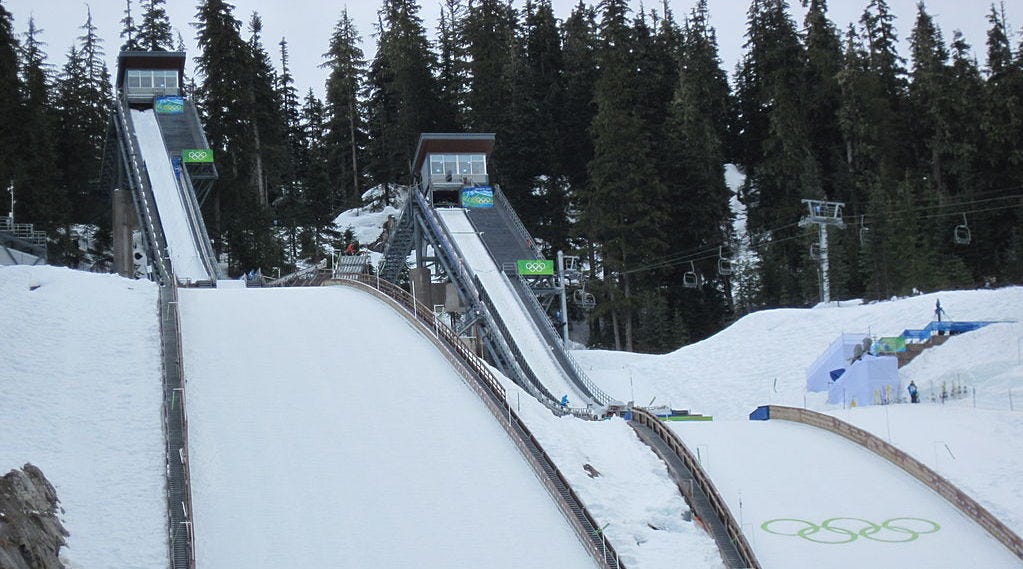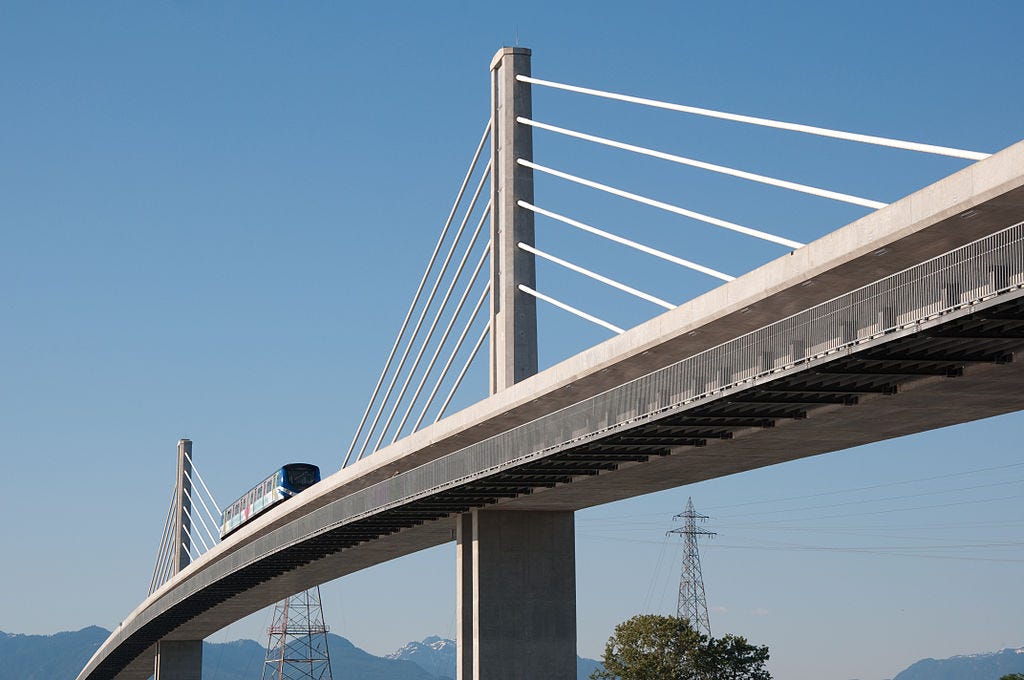
S3 is done. Here are 8 big takeaways
What Calgarians need to understand about a 2026 Olympic bid
And that’s a wrap!
We launched the third edition of the Sprawl (S3) nearly a month ago. It was another experiment in local journalism: instead of going at this edition alone, we collaborated with the Calgary Journal at MRU, working with Sally Haney’s third-year online journalism class. By working with Sally and her students, we were able to cover more ground and dig deeper into what another Olympics could mean for Calgary.
Not one of our stories was initiated by a press release. Instead we directed our own coverage, driven by this question: would a 2026 Winter Games in Calgary help or hinder our city? We delved into different areas including community, environment, economics, infrastructure, security, the Paralympics and more.
Now our work on this file is done—at least for now. We’re off to enjoy watching the PyeongChang Olympics like the rest of you.
But before we close up shop, here are eight things Calgarians need to understand about a possible Olympic and Paralympic bid for 2026—a Games that is estimated to cost $4.6-billion.
1. These are the Nenshi Games (so far)

“He will try to take the ring(s). You know of whom I speak. “
—Lady Galadriel. And the Sprawl
Mayor Naheed Nenshi tries to play it cool about a Calgary 2026 bid—we’re just exploring, we haven’t decided!—but Calgary isn’t speeding toward an Olympic bid by accident. He has continually nudged this process along with little pushback from the rest of city council. Incredibly, with fewer than 45 days left before the IOC’s March 31 deadline for cities to declare their bidding intentions, Nenshi is still the only elected government leader championing Calgary 2026.
He wantssssss it, precious.
For politicians, the Olympic rings mean legacy and opportunity (see: Klein, Ralph). And Nenshi has long been smitten by the Games. He says he’s not taken with the IOC, and that he’s counting on Calgarians to keep city hall honest as it explores Calgary 2026. That’s a direct quote, by the way: “It’s really the job of the community to keep us honest.”
Calgarians should be ready to ask tough questions in the months ahead.
2. Calgary has leverage with the IOC—big time
With cities bailing on the IOC left, right and centre, the IOC needs Calgary rather desperately. This gives us an upper hand in any negotiations. The U.S. announced earlier this month that it won’t pursue 2026. The IOC could face further embarrassment in a June referendum if the citizens of Sion, Switzerland, vote against bidding for 2026.
Earlier this month, the IOC spelled out a what it calls a “new norm” for host cities. It’s an effort to woo them into bidding. But frankly, Calgary is in a good position to dictate a new norm to the IOC. If we bid, we should play hardball.
As the Calgary Bid Exploration Committee put it: “Calgary doesn’t need to fit into the Olympics, the Olympics must fit in to Calgary.”
3. Question rosy promises of economic benefits

The bid exploration committee commissioned reports that projected upward of $2.5-billion in Canadian GDP growth if Calgary hosts the 2026 Olympics. But subsequent analyses called these numbers into question.
“To claim that GDP and employment will increase — at all, but especially by the magnitudes suggested in the 3rd-party reports — is to go far beyond what the evidence suggests,” wrote the University of Calgary’s Trevor Tombe in his analysis.
Brad Humphreys of West Virginia University suggested the report authors “cherry-picked” from academic literature to present a favourable picture of hosting the Olympics.
“[I] recommend strongly that these reports be given relatively little weight when reaching a conclusion about the relative merits of hosting the 2026 Games,” Humphreys wrote.
Oh, and Tombe recommended a thorough cost-benefit analysis, something that still hasn’t been done.
4. A regional Games sounds good on paper, but…

In its desperation, the IOC says it’s all for Games venues being spread throughout Western Canada: Calgary, Edmonton and Whistler. But what the IOC wants is 2026 bidders. They want a contest—and to date, they’ve frowned on venue dispersion.
“That simply has to do with the visibility of the brand, among other things,” said Michael Heine, director of the International Centre for Olympic Studies. “They like the centre of their narrative — the Olympic stadium and the facilities—as adjacent as possible. Nice and tidy in one packet, as it were.”
As well, spreading Olympic events across cities and provinces introduces political problems. Who gets what—and who pays for what? Not all Olympic events are of equal public interest, notes Heine. “So who gets the the plums and who gets the pits?”
5. A no-frills Games could be a missed opportunity for citybuilding (airport LRT, anyone?)

Jonathan Pope/Flickr
Talk of a cut-rate, no-frills Olympics is all the rage as cities consider ways to host the Games without breaking the bank. At the same time, for cities, a major perk of the Olympics is that the Games can knock funding loose from other levels of government—money that cities wouldn’t ordinarily get.
Vancouver, for example, got the Canada Line (among other things): the 19-kilometre light rail line that links the airport with the rest of the city.
“What would legacy infrastructure look like in Calgary, in addition to fixing up all of our old Olympic assets?” said Councillor Evan Woolley. “We haven’t really been talking about that. We’ve been costing out the Olympics based on how little we can spend on them.” Fixing up sport infrastructure, he says, isn’t reason enough to host.
“We need to have a vision about what the Olympics is going to be for us in 2026,” Woolley said.
And that brings us to our next point…
6. Calgary needs a clear vision for its future
In the absence of this clarity, Calgarians are vulnerable to getting fleeced. We need a new publicly-funded hockey arena or Calgary will lose its standing in the world! We need the Olympics or we’ll never get out of this downturn!
We are not the city of 1988, 1998 or 2008. So what’s next? As a city we’re in a bit of an odd spot. We’re not the oil and gas powerhouse we once were, but we’re not the next headquarters for Amazon, either.
“Calgary has an opportunity to imagine a vision for itself collectively,” said community engagement consultant Karen Ball, who was on the bid exploration committee. “Should that happen through bidding for the Olympics? I don’t know. But if it doesn’t happen through bidding for the Olympics, what are the kinds of things that will drive those conversations citywide?”
Olympic bid or not, Calgary needs those conversations.
7. Be skeptical of Calgary 2026 media coverage
In a rare moment of candor in PyeongChang, IOC vice president Juan Antonio Samaranch talked about how the IOC would sway public opinion in its favour. “We are very importantly supporting [Calgary] in dealing with their local press,” he said.
He also said: “We are very well-equipped to help them explain why this is good to them.”
That’s right: If they can get away with it, the IOC—the IOC!—is going to tell Calgarians what’s good for us.
The sad part is that, with local newsrooms gutted, they’ll be able to do that fairly easily. It will be up to Calgarians to be vigilant.
The City of Calgary has already shown that it’s keen to work with the IOC on media relations. Be skeptical of what you read in local media, as much of it will be initiated by politicians and press releases.
8. There are good reasons to bid, and good reasons not to
Argh, listen to us! After nearly a month with our head in this stuff, we sound like the damn exploration bid committee—which ended its exploration on the fence, undecided about whether or not Calgary should bid.
Send help!
In seriousness, there are compelling reasons on both sides, and there are community leaders and citizens on both sides. People who believe strongly in Calgary’s future, but have different takes on another Calgary Games. That’s okay. It’s healthy.
Keep the debate civil.
But most importantly, keep it going.
Jeremy Klaszus is editor-in-chief of The Sprawl.
Support independent Calgary journalism!
Sign Me Up!The Sprawl connects Calgarians with their city through in-depth, curiosity-driven journalism. But we can't do it alone. If you value our work, support The Sprawl so we can keep digging into municipal issues in Calgary!




